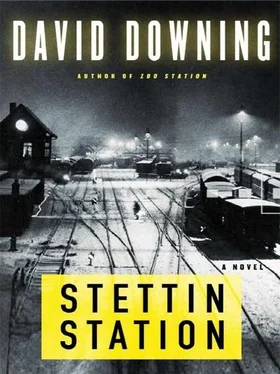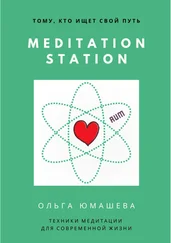David Downing - Stettin Station
Здесь есть возможность читать онлайн «David Downing - Stettin Station» весь текст электронной книги совершенно бесплатно (целиком полную версию без сокращений). В некоторых случаях можно слушать аудио, скачать через торрент в формате fb2 и присутствует краткое содержание. Жанр: Шпионский детектив, на английском языке. Описание произведения, (предисловие) а так же отзывы посетителей доступны на портале библиотеки ЛибКат.
- Название:Stettin Station
- Автор:
- Жанр:
- Год:неизвестен
- ISBN:нет данных
- Рейтинг книги:3 / 5. Голосов: 1
-
Избранное:Добавить в избранное
- Отзывы:
-
Ваша оценка:
- 60
- 1
- 2
- 3
- 4
- 5
Stettin Station: краткое содержание, описание и аннотация
Предлагаем к чтению аннотацию, описание, краткое содержание или предисловие (зависит от того, что написал сам автор книги «Stettin Station»). Если вы не нашли необходимую информацию о книге — напишите в комментариях, мы постараемся отыскать её.
Stettin Station — читать онлайн бесплатно полную книгу (весь текст) целиком
Ниже представлен текст книги, разбитый по страницам. Система сохранения места последней прочитанной страницы, позволяет с удобством читать онлайн бесплатно книгу «Stettin Station», без необходимости каждый раз заново искать на чём Вы остановились. Поставьте закладку, и сможете в любой момент перейти на страницу, на которой закончили чтение.
Интервал:
Закладка:
Feeling safer with the door locked behind him, he lay down on the bed and tried to take stock of his situation. It stank, was as far as he got.
He was exhausted, but still found it hard to sleep. He felt as if his eyes had just closed when a hand rapped on the door and a child's voice told him it was time to get up. He had a thorough wash for the first time in days, paid for the room, and walked back to the station in search of food. He hadn't felt hungry for a long time, and still didn't, but the weakness in his legs could no longer be ignored.
The train was delayed for another hour, and he had plenty of time to eat what proved a dreadful meal. The station buffet was crowded, with many uniforms visible, but there was no police presence, and no sign of leather coats. Danzig might now be a part of the German Reich, but it seemed a long way from Berlin.
After washing his meal down with a better-than-expected bottle of beer, he stopped at the kiosk for a newspaper. Handing over the pfennigs, he noticed a month-old film magazine which Effi had brought home several weeks before, and which he knew contained a wonderful picture of her. He bought it, walked out onto the platform, and found the relevant page. 'Effi Koenen, star of Homecoming', smiled out at him.
He gazed at her for several moments before turning to the newspaper. The German front line in the East was in the process of being 'rationalised', and the Army had a new commander-in-chief. Hitler had sacked Field-Marshal Brauchitsch and taken the job for himself. But, according to the official communique, nothing had really changed: since all the successes of the last few years had 'originated entirely from the spiritual initiative and the genius-like strategy of the Fuhrer himself,' he had, 'in practice, always been leading the German Army.' In the apartment on Prinz-Eugen-Strasse, she woke with a start, wondering for a moment where she was. Then memory kicked in, and she lay there in the darkness for a while, before angrily forcing herself up and into the bathroom. A slight tug of the blackout curtain revealed another grey day.
What was she going to do?
Stay in, she supposed. But not in darkness, not for days on end. That really would drive her mad.
She went into the kitchen, put on the kettle, and did an inventory of the food that they'd left behind. There was enough to last her a week, she thought. Maybe ten days. By then, John should be out of the country.
She would have to keep as quiet as she could, and pray that no one realised she was there. As long as she didn't use any lights, no one would notice that the blackout curtains were half open. If the air raid warning sounded, she would simply ignore it – there was no way she could risk going to the shelter in her unmade-up state.
Once the food was gone, she would need to find some way of getting more. But she could worry about that when the time came. After reaching Dirschau late in the afternoon, Russell endured another long and anxious wait. The Berlin-Konigsberg express finally arrived around nine. Two inspections and three hours later it reached the old capital of East Prussia, where falling snow was visible in the bright arc lights illuminating the yard. Leaving the train, he could see buildings with lighted windows. There really was a world beyond the blackout.
Riga, it transpired, was still two trains and a day away. The first, which wouldn't be leaving until eight the following morning, would get him to Tilsit, where, according to his old history master, Napoleon and Czar Alexander had met on a floating raft in the River Niemen. The second, a local stopping service, would carry him across the former republics of Lithuania and Latvia, which Hitler and Stalin had doomed between them.
So where to spend the night? Appalling weather conditions further to the east had wreaked havoc on what timetables there were, and filled the station platforms with enough soldiers and civilians to hide the odd fugitive. It seemed safer to stay where he was than wander the unknown streets of Konigsberg, so he found himself a gap in the rows of sprawled-out travellers, and laid himself down on the hard platform with his bag for a pillow. He even managed a few hours' sleep.
When the cold woke him for the last time, light was seeping through the station's glass roof. He went in search of food, and found the buffet well stocked with rolls and coffee. Quality was clearly not an issue, because both were awful.
Back on the platform advertised for the Tilsit service, he saw a train of boxcars slowly approaching the station from the north. As he watched the locomotive steam by, his nose was suddenly assaulted by the stench of human waste. There was a hint of movement in the small openings high on the wagon-sides, and yellow-brown liquid was oozing out from under several doors. The train was leaking urine and excrement.
'Russian prisoners,' a voice said beside him. It was a German army captain. There was disapproval in his tone, and in the slight shake of his head, but he said no more. The train cleared the station, but the smell hung in the air, as if reluctant to disperse.
The officer disappeared up the platform, leaving Russell with no expectation of seeing him again; but half an hour later, just as his train was leaving, the man walked into his otherwise empty compartment. He seemed eager to talk, and Russell, after inventing some relatives as his reason for visiting Riga, was happy to let him do so. The captain had been involved in the Russian campaign since its inception, and was on his way back to the front after a week of compassionate leave.
How were things going, Russell asked him, in as a neutral a tone as possible.
Things were difficult, his companion admitted. Really difficult. But the men had been magnificent. People back home had no idea what it was like, but then how could they?
And the Russians? Russell asked.
'They're not like the French,' was the officer's answer.
Russell tried, ever so gently, to draw out his companion on the future course of the war, but all he got in response were pious expressions of hope. Once the winter was over, then things would become clearer. Once the winter was over, changes would have to be made. Once the winter was over, they would do what had to be done.
The possibility of defeat was there in the man's eyes, in his voice and his evident agitation, but it couldn't be admitted. Not yet.
The officer ended the discussion by saying he needed some sleep, leaving Russell to stare out at the snow-dusted East Prussian fields. Riga, he suddenly remembered, was icebound for at least part of the winter. Surely they hadn't sent him several hundred kilometres in search of a non-existent ship?
When the train reached Tilsit in mid-afternoon he discovered that there was only one daily connection to the old Latvian capital, and it left at seven in the morning. He would have to endure another night on a station platform.
There were worse places to spend one. Stuck on a far-off rim of Hitler's bloated Reich, Tilsit and its station seemed sleepy enough for any fugitive. There was only one limp swastika spoiling the sky, and the uniforms on display all belonged to the Reichsbahn. The only evidence of war was the traffic passing through – supply trains moving in both directions, a hospital train and rakes of empty flatcars travelling west, a troop train full of anxious faces heading for the front.
One particular transport caught Russell's attention. A long line of box cars drawn by an old and wheezing locomotive arrived just before dawn, and spent the next two hours stabled in a siding across from the station. SS guards strode up and down beside it, but a prolonged burst of banging was the only sound that reached across the tracks. Someone hammering on the inside of a door, Russell guessed. When the train clanked into motion, the fist fell silent.
Читать дальшеИнтервал:
Закладка:
Похожие книги на «Stettin Station»
Представляем Вашему вниманию похожие книги на «Stettin Station» списком для выбора. Мы отобрали схожую по названию и смыслу литературу в надежде предоставить читателям больше вариантов отыскать новые, интересные, ещё непрочитанные произведения.
Обсуждение, отзывы о книге «Stettin Station» и просто собственные мнения читателей. Оставьте ваши комментарии, напишите, что Вы думаете о произведении, его смысле или главных героях. Укажите что конкретно понравилось, а что нет, и почему Вы так считаете.












